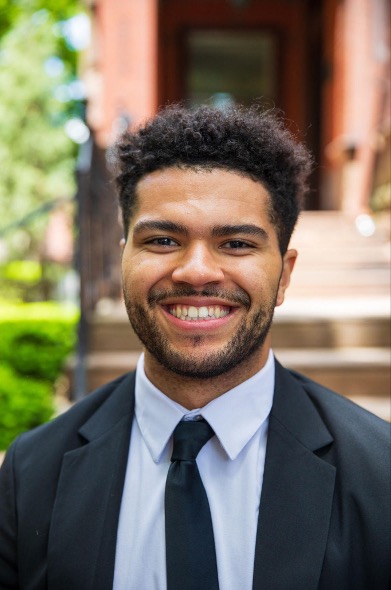This Q&A highlight features Nigel Newby, an Honorable Mention in the 2024 CRA Outstanding Undergraduate Researchers award program. Nigel graduated with a degree in Computer Science and Economics from the University of Pennsylvania.
What brought you to computing research?
I first considered doing research at the suggestion of my mentor, Professor Eric Fouh, who was assigned as my academic advisor. We had a meeting toward the end of my sophomore year and he asked me if I had a job or an internship for the summer. After telling him I was planning to return to the restaurant in my hometown where I had worked the previous summer, he invited me to work with him. When I heard that his research involved helping struggling computer science students by studying effective learning behaviours, I knew right away that I wanted to work with him, because I was a student who had struggled early on in my CS education.
Can you tell us about your research?
We investigated learning behaviors of CS students so that instructors could use our findings to better aid students in their learning. First, we developed a program that enabled students to view custom Java runtime error messages written by instructors. We found that students were more likely to view these error messages as assignment difficulty increased and that 40% of students agreed or strongly agreed that the enhanced error messages were useful for debugging. We presented these results at SIGCSE in 2023. Then we analyzed online Q&A platform use/disuse. I developed a taxonomy to categorize Q&A platform behaviors. We found that students who asked more than one question on online Q&A platforms performed better, which I presented at SIGCSE in 2024.
The Q&A platform taxonomy developed by Nigel Newby to understand helpful student learning behaviours.
What did you find challenging about getting into research?
When I was first getting started, I struggled with understanding the scope and goal of academic research as a whole. It was difficult to get a grasp of high-level concepts such as how researchers work collaboratively, the types of questions they ask, the things they care about, and what goals they have.
What about challenges during your research project?
Part of research is answering open-ended questions with unclear answers. For example, we had to decide which characteristics we wanted to observe in the data from our online Q&A platform to uncover associations between these characteristics and student learning outcomes. We knew that we wanted to identify characteristics that could be measured in real-time during the semester, so that instructors could observe these characteristics to make just-in-time interventions. We combined this constraint with what was available to us in our data to make a decision.
What kinds of skills and experiences has research given you?
Conducting research has developed my technical skills and critical thinking skills, which have helped me be more effective in my early career as a software engineer. For example, I learned how to make a compelling evidence-based argument that has an impact on the real world. Research also allowed me to help others. My experience struggling to adjust as a black student at a predominantly white institution, along with the generosity of my college mentor who was one of the few black computer science professors in the department, was the impetus that started my work in research. Through my experience, I have felt gratified in knowing that I can help other students who are in the same shoes that I was once in to succeed in their endeavors, and this passion is something I carry with me today.
What are the most important qualities for a researcher?
I think humility, creativity, determination, and compassion are the most important qualities for a researcher. Humility and determination are important because conducting research can be disheartening. Sometimes the results are not as impactful as you had hoped or you did not get the recognition that you wanted. It is important to be humble, so that you can aim to conduct research for the aim of benefiting society, not just yourself. It is important to be determined, such that you can pursue your goals with fortitude, despite the challenges. Creativity is important because conducting research is about advancing the limits of our understanding, and it takes a creative mind to be able to do so. Compassion is important because it enables you to remember that the fruits and benefits of research should be shared by everyone.
Do you have any advice for other students looking to get into research?
First, I would say to build relationships with professors such that you can find mentorship and ask to work with them. Second, I would advise students to find out what they’re passionate about, and to let that passion guide you into research. When people that share your passion see how excited you are, they will be more likely to want to work with you. Your research does not necessarily have to align with what your college major is! Do research that you are passionate about and that you think can make a positive impact on people’s lives.
— Edited by Alejandro Velasco and Emma McDonald
